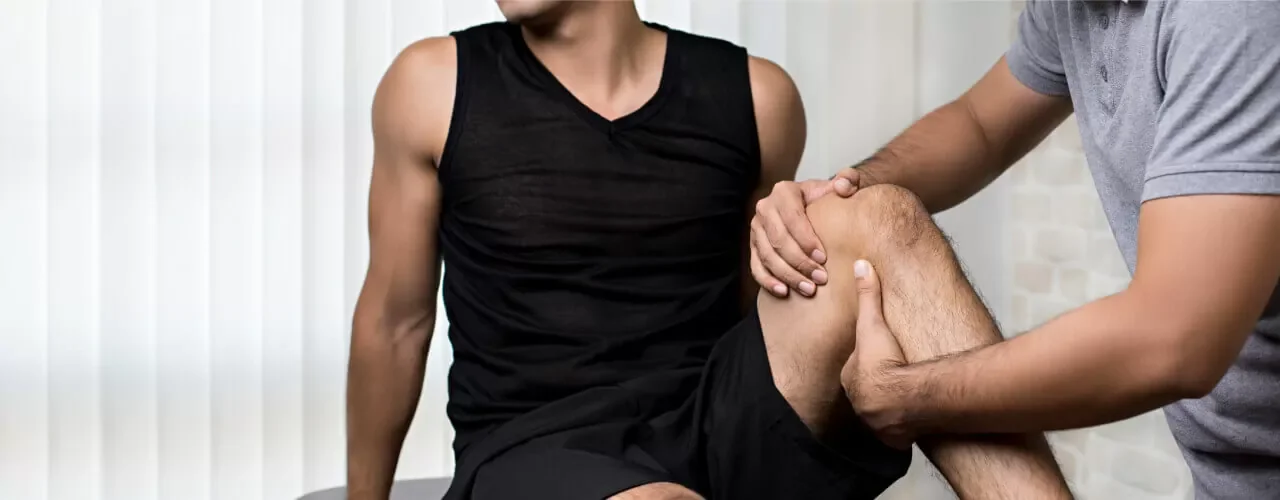You may think of physical therapy as something for athletes in training or those who are struggling to recover after a serious accident. While physical therapy is used for both of these types of things, there are so many more conditions that physical therapy can treat. If you’re experiencing any of the following symptoms, you should consider making an appointment with a physical therapist. Please be sure to call Pinnacle PT and Personal Training to find out how physical therapy can help if you’re experiencing any of these symptoms.
1. Constant Back Pain
Back pain is something many people experience at some point in their life. Sometimes back pain is caused by pulled muscles. Other times there are more serious issues involved. Back pain might be related to a bulging or even a ruptured disk. Abnormal curvature of the spine can cause pain throughout the back as well. Even minor car accidents can lead to debilitating back pain.
Millions of people struggling with chronic back pain may find relief with physical therapy treatment. A physical therapist can put together a treatment plan that addresses your individual needs and focus on the source of your back pain. A physical therapist has several treatment options available to help reduce or even eliminate back pain. A therapist may use more basic techniques such as massage. Your treatment may also include methods such as laser therapy. Laser therapy can decrease inflammation and promote healing at the cellular level.
2. Difficulty Recovering from Injuries
If you’re having difficulty recovering from even minor injuries it may be time to visit a physical therapist. The following are several basic injuries many people experience that can heal faster with the help of a physical therapist.
- Sprains – A sprain is a tearing or extreme stretching of a ligament. Physical therapy can help strengthen the joints and ligaments. A physical therapy program may also include electrical stimulation to promote healing.
- Strains – A strain is a muscle or tendon that is torn or stretched too far. A physical therapist may prescribe specific exercises to help the muscle heal without causing scar tissue to build up. Ice or heat therapy might be used to reduce pain and swelling.
- Shin Splints – Pain along the front part of the lower leg is often referred to as shin splints. Increasing or changing activity can cause pain in the muscles and tendons along this area of the leg. When working to improve shin splints, a physical therapist might use ice therapy. To prevent them from occurring in the future, physical therapy might include several types of exercises or new ways of performing athletics or daily activities.
- Tennis or Golf Elbow – Tennis or golf elbow doesn’t just happen to individuals who play tennis or golf. Repetitive motions and overuse of certain areas of the body can lead to pain, tenderness, and inflammation. A physical therapist can teach you exercises and new ways of moving that may help heal and prevent tennis or golf elbow from reoccurring.
3. Chronic Headaches
Headaches can range from mild to severe migraines. Most people experience headaches on an occasional basis. If you’re regularly struggling with headache pain, physical therapy may be able to help. A therapist will likely do an evaluation of the specific types of headaches you’re having before coming up with a treatment plan. You may be struggling with general tension headaches, migraines, muscle-related headaches, or what are known as secondary headaches.
A physical therapist may use massage in the shoulders and neck area to relieve tension throughout the upper body. Myofascial release and different types of joint mobilizations might also be used. Techniques to improve posture can also reduce the number of headaches you experience and the severity. Whether it’s regular tension headaches or migraines, physical therapy can help you find the relief you need.
4. Joint Pain and Stiffness
Joint pain and stiffness may occur more frequently in the morning when you first wake up. It might happen after physical activity. It may also happen when an individual suffers from a particular medical condition such as arthritis. There are lots of reasons stiffness and joint pain occur. Physical therapy may be able to help lessen the pain in your joints as well as the stiffness that could be limiting your mobility.
A physical therapist may use manual therapy that includes soft tissue mobilization to ease pain and stiffness and increase your overall flexibility. Sometimes a physical therapy program might also include different types of ultrasound. Ultrasound can improve overall circulation which can increase mobility in joints and reduce pain and stiffness.
5. Poor Posture
Poor posture doesn’t just look unappealing, it can cause a variety of health problems or make those you already have worse. The following are several conditions that bad posture may cause or worsen.
- Arthritis – Poor posture can cause an individual to put more stress on their hips, knees, and ankles. This can occur when walking, standing, or even sitting.
- Fatigue – Standing or sitting in an incorrect position can make a difference regarding how easy you tire.
- Circulation Problems – If you’re sitting slumped over in a chair for hours this may contribute to circulation problems throughout your body.
- Shoulder & Back Pain – Shoulders that are continually slumped forward can lead to an increase in both shoulder and back pain.
These are just a few problems that can occur if a person has poor posture. A physical therapist can work with you to improve your overall posture. This might include strengthening core muscles, working on breathing exercises, or setting up a different type of workspace.
If you’re experiencing any of these five symptoms, you’ll want to consider starting a physical therapy program. A physical therapist is trained to use several specific methods and techniques to help improve your physical health and the overall quality of life. Contact Pinnacle PT and Personal Training so an experienced physical therapist can help get you started today.


